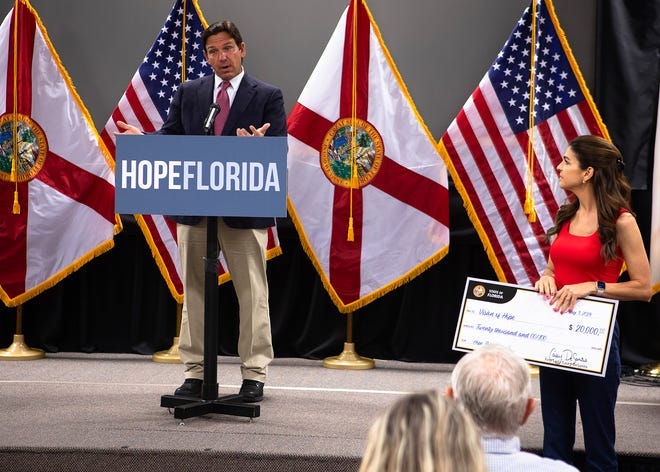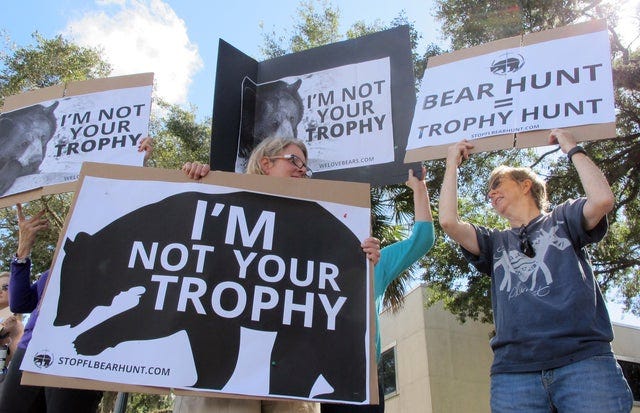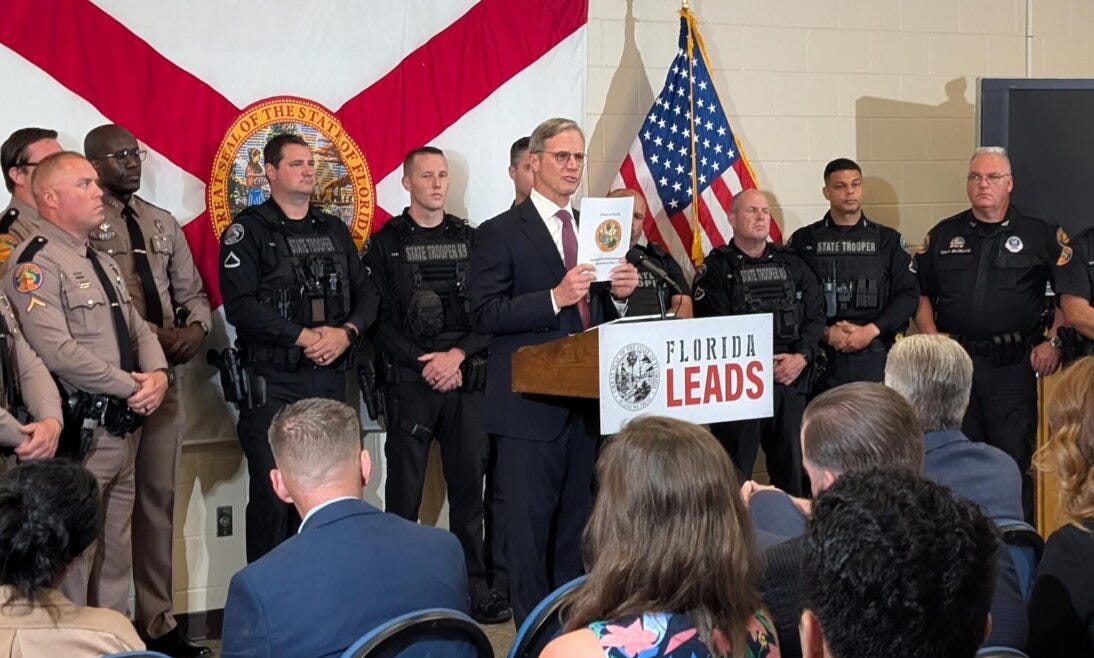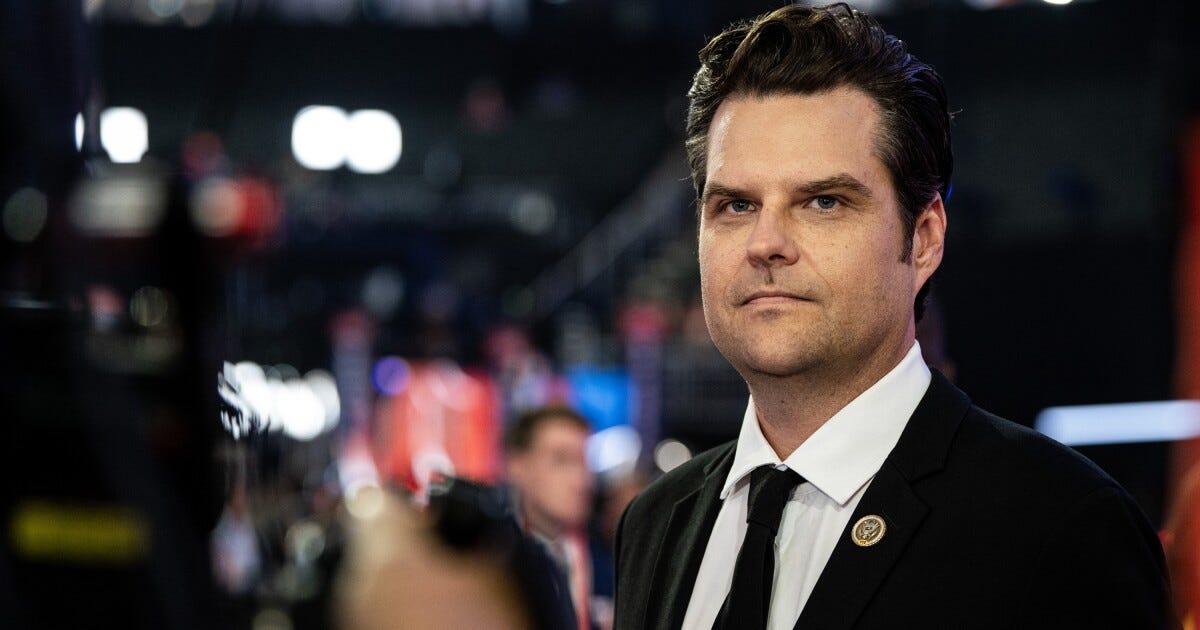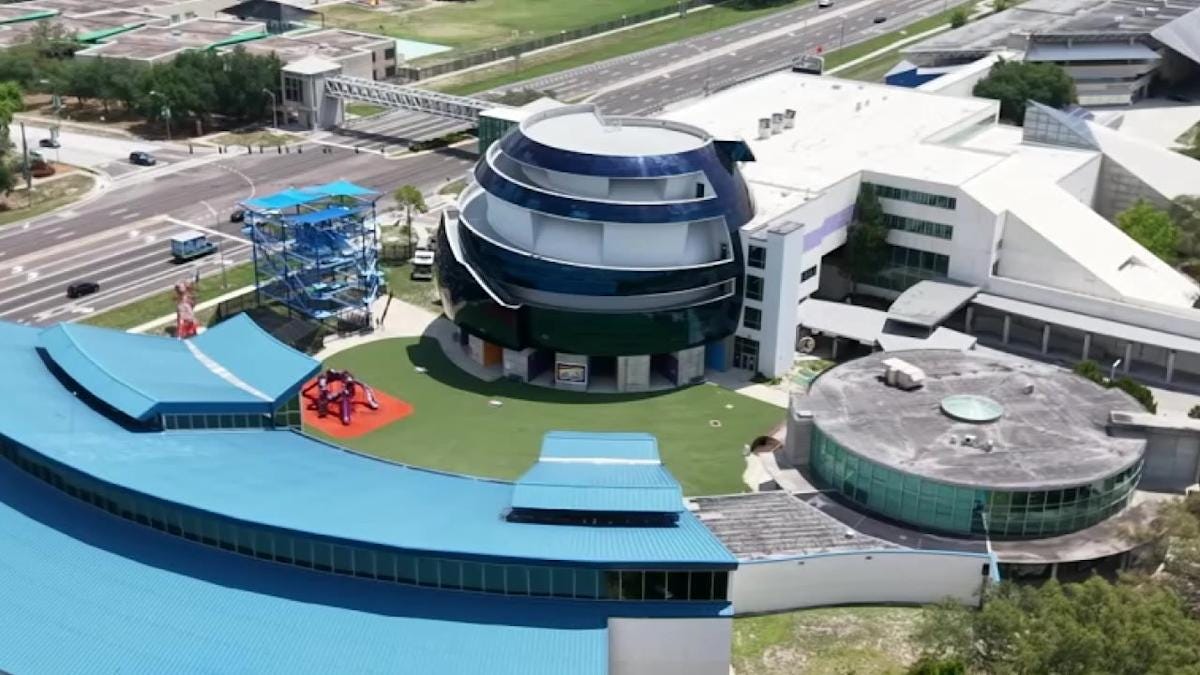Universal Orlando’s Epic Universe Officially Opens & Criminal Probe into DeSantis-Linked Hope Florida Scandal
May 22, 2025 - This Week's News from Central Florida
Welcome to this week’s edition of the Central Florida Times, an independent, reader-supported newsletter focusing on the Sunshine State. These are the most important stories you need to know from across Central Florida. To never miss an update, subscribe here:
Here’s the latest from Central Florida…
Universal Orlando’s Epic Universe Officially Opens With Five New Worlds
Universal Orlando’s highly anticipated Epic Universe theme park opens its gates Thursday, introducing five new lands and 11 rides in a bold move to reshape Central Florida’s tourism landscape. The first major theme park in over 25 years, Epic Universe is Universal’s fourth park and its largest expansion in resort history, adding 750 acres and 2,000 hotel rooms to Universal Orlando’s property. With an estimated $7 billion investment from parent company Comcast, the park combines classic and modern franchises in immersive, portal-accessed worlds. Guests can explore five immersive lands—Super Nintendo World, the Wizarding World’s Ministry of Magic, How to Train Your Dragon’s Isle of Berk, the eerie Dark Universe, and the cosmic-themed Celestial Park. The park features 11 rides, including high-tech attractions like the Stardust Racers dueling coaster in Celestial Park and dark ride adventures with classic monsters and dragons. Guests can also enjoy eight interactive shows and a wide array of themed dining options. Comcast executives view the park as a major growth driver in entertainment, challenging Walt Disney World’s long-standing dominance in the region. Analysts project Epic Universe could bring in over $1.3 billion in revenue and welcome 9.5 million visitors in its second year, potentially drawing guests away from Disney. While competition may intensify, experts say the overall effect could be increased tourism for the entire Orlando area. Local officials expect the influx of visitors to Epic Universe will benefit hotels, restaurants, and boost investment in infrastructure, but that comes at the expense of added traffic congestion, especially during the opening weeks.
Prosecutor Launches Criminal Probe into DeSantis-Linked Hope Florida Scandal
A state prosecutor in Tallahassee has launched an investigation into the $10 million Medicaid settlement that was routed through First Lady Casey DeSantis’ signature charity initiative, Hope Florida. The funds, stemming from a negotiated settlement with Medicaid provider Centene for alleged overbilling of prescription drugs, were ultimately funneled into a political committee led by Governor Ron DeSantis’ former chief of staff James Uthmeier, who now serves as Florida Attorney General, raising concerns about potential public corruption. 2nd Judicial Circuit State Attorney Jack Campbell’s office has not publicly confirmed the investigation, though records related to the Hope Florida Foundation requested by reporters were withheld due to an “open, on-going investigation.” The probe follows months of high-profile scrutiny from state lawmakers and the press over how the funds were distributed with little to no oversight. The Hope Florida Foundation, launched to support Casey DeSantis’s flagship welfare initiative, received $10 million from the settlement last year. The foundation then granted $5 million each to two nonprofits, which quickly funneled $8.5 million to a political committee chaired by then-DeSantis Chief of Staff James Uthmeier. That committee spent the funds to oppose a 2024 ballot measure to legalize recreational marijuana. Gov. DeSantis has dismissed the probe’s basis, saying, “Based on what?” when asked about the investigation, first reported by the Tampa Bay Times and Miami Herald. He defended the program’s mission, calling the probe “pure politics.” State Representative Alex Andrade (R-Pensacola), who led the legislative inquiry into the matter, said he believes a crime occurred and confirmed he submitted findings to both state and federal authorities. While neither the governor nor Casey DeSantis have been formally accused of wrongdoing, the outcome of the investigation could have political implications, especially as Casey DeSantis considers a potential run for governor in 2026.
Florida Wildlife Board Approves Bear Hunt, First Since 2015
The Florida Fish and Wildlife Commission has endorsed a plan for the state's first black bear hunt since 2015. The proposal, which passed 4-1, sets a statewide kill quota of 187 bears, with 18 allocated to Central Florida. The hunt, scheduled for December, aims to manage the state's growing bear population, estimated to be over 4,000. Proponents argue that the hunt is necessary to balance the bear population with available habitat and to mitigate conflicts between humans and bears. Marion County Sheriff Billy Woods, who is supportive of the hunt, described frequent bear encounters and unreported incidents. However, animal advocates strongly oppose the plan, citing concerns about the potential inhumane treatment of bears and the lack of updated population data. The commission's plan allows hunters to use dogs and bait stations, methods that were prohibited in the 2015 hunt. Hunters will need to obtain a permit through a lottery system, with Florida residents paying $100 and out-of-state residents paying $300. Each hunter limited to one bear and restrictions are in place to protect cubs and females with cubs. The hunt will be divided into seven bear management areas, with three areas closed due to low bear populations Final rules will be considered in August, ahead of the proposed hunt, with future hunts possible each year.
Florida’s Bold Vision to Lead on Immigration Enforcement
State officials have unveiled an aggressive 37-page “Immigration Enforcement Operations Plan” to the federal government, laying out a robust framework for detaining and deporting undocumented immigrants. Touted by Florida leaders as a national model, the plan includes proposals for expanding state-led immigration efforts independently of federal agencies. Head of the State Board of Immigration Enforcement, Larry Keefe, describes the plan as the “Florida Blueprint,” aiming to boost intelligence sharing and train local officers to assist federal authorities. Gov. Ron DeSantis noted that over half of the country’s 287(g) agreements, which allow local officers to act in immigration roles, are based in Florida. The proposal outlines the potential for rapid construction of detention centers capable of holding up to 10,000 individuals and designed to be operational within 72 hours using private contractors. It also calls for the deployment of National Guard units and training local law enforcement to assist with arrests and transportation. Additionally, officials seek to empower Florida National Guard Judge Advocate General officers to serve as immigration judges and recommend suspending federal detention standards to prevent detainee releases due to a lack of space. The plan further suggests launching a self-deportation initiative, including covering flight costs for those who choose to leave voluntarily. At an event in Tampa last week, DeSantis highlighted that over 1,800 Florida Highway Patrol troopers are trained in immigration enforcement, and 100 have been sworn in as special deputy U.S. Marshals. Critics, including immigration attorneys, warn that the state’s immigration blueprint risks constitutional conflicts, due process violations, and high costs, while potentially harming Florida’s workforce and economy.
Matt Gaetz Teases Run for Florida Governor, Shaking Up 2026 GOP Field
Former U.S. Rep. Matt Gaetz may be preparing a surprise entry into Florida’s 2026 governor’s race, complicating what could be an unsettled Republican primary. Though Congressman Byron Donalds (R-Naples) has secured Donald Trump’s endorsement as the first GOP gubernatorial contender, Gaetz’s potential candidacy, along with possible interest from First Lady Casey DeSantis, introduces new uncertainty. The Trump-aligned firebrand hasn’t officially declared, but his recent remarks and social media activity suggest he’s seriously weighing his options. “It’s very early. Many tectonic plates can shift in Florida in the next year or so,” Gaetz told NBC News, echoing Casey DeSantis’ own cautious comments about timing. GOP strategists say Gaetz sees opportunity in a fractured primary, where a field of three or more contenders could enable a candidate to clinch the nomination with just a third of the vote or less. Recent polling shows Casey DeSantis and Donalds nearly tied at the top, with Gaetz trailing but still within striking distance if the field fractures. Casey DeSantis’ prospects have been clouded by recent controversy over the Hope Florida Foundation, though public events defending the initiative hint she may still run. Gaetz has also faced past allegations of misconduct and ethical questions, which resulted in his high-profile derailed nomination for U.S. Attorney General. He has denied any wrongdoing. Meanwhile, Donalds remains the frontrunner, bolstered by Trump’s support, which gives him a strong fundraising and visibility edge.
U.S. Reps Call for Federal Probe Over Hope Florida’s $10M Payment
Two Democratic U.S. representatives are urging federal agencies to investigate Florida’s handling of a $67 million settlement with health care provider Centene. U.S. Reps. Kathy Castor (D-Tampa) and Darren Soto (D-Orlando) say $10 million from the agreement was improperly directed to the Hope Florida Foundation, a state-backed nonprofit created to support a program championed by First Lady Casey DeSantis. The money, intended to settle Medicaid-related overbilling, was later funneled to two nonprofits, including one connected to the Florida Chamber of Commerce. At least $8.5 million eventually went to a political committee aligned with Gov. Ron DeSantis, formed to oppose a marijuana legalization ballot measure. Castor and Soto argue that Medicaid settlement funds must support health services benefiting program recipients. “Any unlawful diversion of Medicaid dollars in Florida means that the state is less able to provide services,” they wrote in a letter to federal officials, urging federal agencies to determine whether the $10 million transfer violated federal regulations. The letter was sent to the Centers for Medicare & Medicaid Services and the Department of Health and Human Services’ acting inspector general, who confirmed they are reviewing the matter. Gov. DeSantis has repeatedly defended the state’s actions as “appropriate” and said the donation was a “cherry on top” that came in addition to the settlement.
Forest-to-Golf Course Land Swap Is Off the Table
A controversial proposal to trade state forest land to a luxury golf developer has officially collapsed, Florida environmental officials have confirmed. The deal, which faced fierce public opposition last summer, involved transferring 324 acres of protected forest near Withlacoochee State Forest to Cabot Citrus Farms in exchange for 861 acres of timberland near Cedar Key. Critics argued that the land to be traded is environmentally sensitive and holds high ecological value, serving as a wildlife corridor and home to threatened gopher tortoises as well as a fragile sandhill habitat. State officials, including Gov. Ron DeSantis, initially backed the idea, prompting outcry from conservationists and residents. Public pressure surged following a Tampa Bay Times investigation, leading hundreds to email officials and attend a rare meeting in Brooksville to oppose the plan. Now, a spokesperson for the Florida Department of Environmental Protection (FDEP) has confirmed Cabot has withdrawn from the deal and that no alternative swap is under consideration.
School Districts Brace for Budget Uncertainty Amid Enrollment Decline
Florida school officials are increasingly anxious as they await final word on the state’s education budget, fearing that projected enrollment drops could lead to major funding losses. In Hillsborough County, tensions are rising over how enrollment figures are being interpreted. Some school board members argue district leaders are overstating the number of students by including those enrolled in magnet and choice programs, masking the decline in traditional public school attendance. With staffing decisions for the new academic year underway, those numbers carry high stakes. Traditional public schools have seen steady declines over the past five years, and some of the state’s largest districts estimate losing millions in operational funding. Some districts, like Orange County, are experiencing slower growth and pausing new school construction in response to shrinking student numbers, a trend partly attributed to Florida’s expanded voucher program and more families opting for private or homeschooling. As budget negotiations for the 2025-2026 fiscal year continue to face delays and disagreements, school officials will likely need to exercise patience while awaiting clarity from state leaders. The ongoing stalemate between the House and Senate, primarily centered on proposed tax cuts, has left the state without a finalized budget. Negotiations are expected to resume after the Memorial Day holiday, with the goal of reaching an agreement by the July 1 deadline.
RELATED: Orange County Public Schools Pauses New Construction As Enrollment Falls
Orange County Public Schools (OCPS) is hitting pause on new school construction for the next four years, marking a major shift after decades of near-constant campus growth. The district, which opened 28 schools in the past decade, will launch Luminary Elementary this August and two more schools in 2026—then nothing new until 2031. “We don’t want to open up empty schools,” said OCPS’ chief facilities officer. School board officials echoed the sentiment, citing enrollment projections that show a decline of about 3,100 students in 2025–26. With state funding tied to enrollment, OCPS plans a 2% reduction across departmental budgets. However, construction dollars—sourced mostly from local sales tax, property taxes, and developer fees—remain stable. Though new school projects are on hold, renovations and school replacements will continue, with a growing number of buildings requiring major updates. The district blames declining enrollment in part on lower birth rates and Florida’s expanded school voucher program, which has shifted thousands of students to private and homeschooling options. Officials predict enrollment will rebound by 2031, when construction is planned to resume in fast-growing areas like Apopka, Horizon West, and Lake Nona.
Federal Judge Orders Florida to Help Protect Endangered Manatees
A federal judge has ordered Florida to halt approvals for new septic tanks near the North Indian River Lagoon, aiming to protect threatened manatees from further habitat loss. The May 19 ruling by U.S. District Judge Carlos Mendoza comes as the lagoon’s seagrass beds—vital for manatee survival—continue to decline due to nutrient pollution, much of it traced to septic systems and sewage spills. The judge’s order mandates a moratorium on new septic permits in the watershed area covered by the 2021 Basin Management Action Plan, effective until the state secures a federal Incidental Take Permit for manatees. Florida must also restart a supplemental feeding program for manatees facing starvation and submit a health monitoring plan by June 17. Previous feeding trials, which provided hundreds of thousands of pounds of lettuce to starving manatees, were discontinued after some recovery in seagrass but may now resume as a stopgap measure. The ruling follows the judge’s earlier finding that the state violated the Endangered Species Act by allowing excessive pollution in the lagoon. Wildlife advocates see the court’s actions as a hopeful precedent for stronger protections of imperiled species and their habitats.
Duke Energy Says Clearwater Utility Takeover Would Cost $1B+
Duke Energy claims Clearwater would face a bill of more than $1 billion if it moves to end its long-standing relationship with the utility giant. The announcement comes just weeks before the city is expected to release a study exploring the idea of creating a municipal electric utility. Duke commissioned its own analysis and released it this week, estimating a separation could cost Clearwater between $1.13 billion and $1.52 billion. The total includes buying Duke’s equipment at market value, creating new infrastructure, staffing, and legal and consulting fees. If Clearwater were to separate from Duke Energy, it would also be complex, requiring separation from the grid, replacing substations and cables, and incurring startup expenses for a municipal utility. The city’s 30-year agreement with Duke ends in December, prompting officials to explore alternatives amid frustrations over rising rates. City leaders have hired NewGen Strategies and Solutions to lead their review, but said they’re still awaiting key data from Duke to finalize their analysis. The city's $500,000 study is also expected to examine rate comparisons between sticking with Duke and their own utility, with local officials suspecting Duke's rates may be "unreasonably high." “We value our relationship with the city,” Duke said in a statement, while maintaining that its infrastructure is not for sale. This evaluation comes amid strained relations between Duke Energy and local governments in Pinellas County as rates have steadily increased over the year. The St. Petersburg City Council has also discussed potentially dropping Duke.
Massive Indoor Sports Complex Proposed at Tampa’s MOSI
Hillsborough County officials have identified the Museum of Science and Industry (MOSI) property on East Fowler Avenue as the top choice for a proposed indoor sports complex and arena. The county-led project moved forward in a unanimous vote by commissioners, prioritizing the 74-acre site to spur economic growth and broader redevelopment in the Uptown Tampa area. The planned 175,000-square-foot facility would feature a configuration for up to 12 basketball courts or 24 volleyball courts, making it one of the largest indoor sports venues in the region. County leaders say the project will drive significant tourism and economic activity, catalyzing a $2 billion redevelopment of the area. That broader vision for the Uptown district already includes plans for multifamily housing, retail, a hotel, and a new center for science and innovation. The indoor sports would be have to be integrated into the existing master plan. The MOSI property was selected after reviewing more than 18 possible locations for the sports venue. Several factors give the site the edge: the county already owns the land, the location offers central access to major highways and public transit, and existing MOSI buildings may be reused to reduce costs. Economic studies predict the complex could generate 44,000 hotel stays and $24.5 million in direct spending annually. Initial funding for design will come from BP oil spill settlement funds, with additional support from tourism and sales tax revenues.
St. Petersburg Expands E-Scooter Program
St. Petersburg is set to boost its micro-mobility options with the addition of 900 new electric scooters, expanding a program that has already logged nearly 1.25 million trips since its 2020 launch. City officials selected Lime and Spin as the new operators following a competitive process, citing their advanced safety features and commitment to responsible riding practices. The scooters will be equipped with GPS, capped at 15 mph, and use geofencing to ensure riders park in designated corrals and avoid restricted areas. The city’s scooter share initiative has generated about $1 million in right-of-way fees and has seen a strong safety record, with no incidents involving shared scooters reported in 2024. May remains the busiest month, with daily averages of 761 rides and peaks during major events like St. Pete Pride. New technology, including camera-based sidewalk detection and in-app alerts, will further enhance safety. The expanded fleet is expected to roll out in mid-June, with each company deploying 450 scooters.
Full Sail University Cuts 120 Jobs, Citing Long-Term Stability Goals
Full Sail University has laid off 120 employees, roughly 5% of its workforce, as part of a move the school says is aimed at ensuring “long-term sustainability.” The private, for-profit Winter Park-based college, known for its programs in entertainment, media, and technology, said the layoffs were “primarily” among staff and would not affect academic programs. “This decision, while difficult, follows a careful review,” the university said in a statement. “We stand firmly committed to providing an exceptional educational experience.” The school currently employs around 2,500 people and serves more than 20,000 students both online and on campus. including online learners. The university remains the largest employer in Winter Park and says it is confident in its ability to meet the needs of its students going forward.
Thanks for reading this edition of the Central Florida Times. To never miss an update, subscribe for free:
In the meantime, if you learned something or found this read interesting, please consider sharing it to grow our community!






